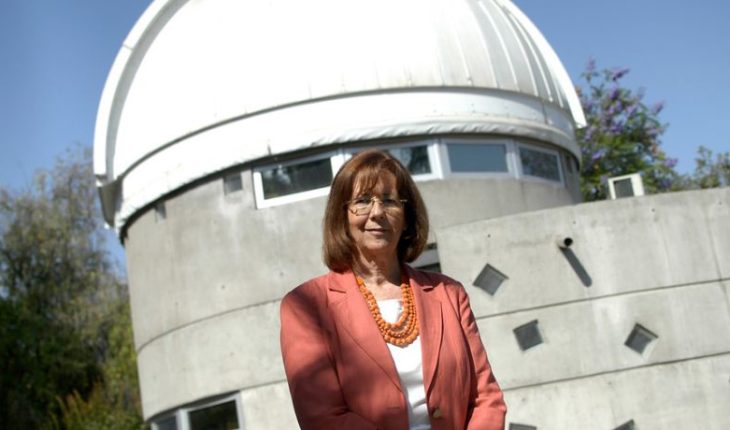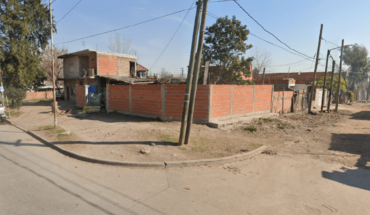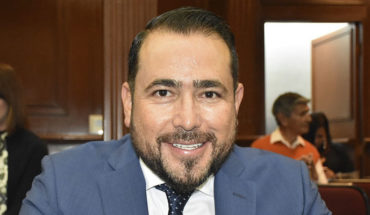Tomorrow at 16:37 hours you will see in Santiago the maximum expression of the solar eclipse, which in the capital will be partial, but which in the Coquimbo Region will be a phenomenon of total character. That is, for a short period of time the Moon will completely cover the Sun. On this phenomenon, what it will bring with it and the current landscape of Astronomy in Chile spoke today the astronomer María Teresa Ruiz.
More astronomy is being talked about in Chile lately. Do you think the eclipse is going to arouse even greater interest in this science? Yes, anyway. I believe that an eclipse and above all a total eclipse is a phenomenon that hardly leaves people indifferent. It’s something everyone knows is going to happen and it’s going to try to see it. Even if it’s a partial eclipse, as here in Santiago, I’ve seen many preparing for the event. So yes, the short answer is yes, the fact that there is an eclipse will increase the Chileans’ interest in astronomical issues. I mean, looking for data on the eclipse they’re going to come across other things and maybe they’re going to be seduced by the beauty of the Universe.
And do you see that in Chile they are already more familiar with science in general? I think so. Yes, I’ve seen at least that it’s like a subject. You turn on the TV or read a diary and the subject of the eclipse is everywhere and that’s usually in people’s interest, yes. They’re not going to start with a campaign that people give the same thing. I really think there’s a lot of interest. I don’t have a statistic, but with people I know I’ve found several who are going to go as a family, all by car with guaguas, dogs, grannies, all north to see the eclipse as far as they go. There are initiatives… are children from the school, children from the north, from the south, to go to a camp to see the eclipse in the Coquimbo Region. Then there has been a very great local interest, in addition to the international interest because that region is recognized worldwide for being a window into the Universe, a place where it can be seen better. It gives a plus that the eclipse occurs in an area recognized as being a place to observe the Universe.
And do you think the eclipse could inspire children to get into science? Maybe so, I think anything that makes them realize that we actually live in a world that goes far beyond the everyday life that one lives and that we are actually part of a Universe, that as a planet we are part of the Solar System and that we have a satellite q that is the Moon, there is the Sun that is our star… All those things I think kids are interested in a lot and it’s amazing how much things they know, ah.
What things, for example? I’ve run into five- or six-year-olds who talk to you naturally about the black hole and ask you well-enattended questions like, ‘How can they put a star in a black hole if the star is much bigger?’ I thought it was wonderful that they knew that. I thought that was extraordinary. Then I think there’s a greater knowledge. I think the media has helped ignite curiosity and children today have fed up with ways of informing themselves, that is to look for information and take out things that in my day not even books had, whereas today the little ones these are super Informed.
What do you think schools could do to make children know even more? Well, all the kids tell a little about the Solar System, that I allege a little bit because it’s what they’re told about Astronomy and it’s one thing to see it and read it in a book, even in a photo; and another is to live it. So, I think even a partial eclipse could be interesting in schools that could be organized to see if it’s clear and can watch it with special glasses. Children may have this experience left for a lifetime. Too bad they didn’t give a holiday because many schools end their school day at about that time, between 4 p.m., and they get to the house, they’re going to have an overtime. They’re going to spend it going home from school. It would have been nicer if they had given a holiday or done something at least in the area where the eclipse is going to be total.
When’s there going to be another eclipse? The next one that comes to us will be the December 14, 2020 and the grace of that that which will be in La Araucanía, in Pucón, out there, and the grace is that it will be at 12 o’clock in the day. So, it’s going to be a matter of looking up and there’s going to be the sun and there’s going to be the eclipse, total besides. Even if it’s cloudy it’s going to be very impressive because at 12 o’s the sun is at full brightness and suddenly it’s going to get dark, night, night, night. Even if there are clouds, it doesn’t matter, it’s going to be dark anyway, and in that area where there’s so much wildlife, animals, birds, they’re going to go crazy with it being done at night in the middle of the day. I think that’s going to be very impressive.
translated from Spanish: Maria Teresa Ruiz, astronomer: “What a pity they didn’t give a holiday because many schools end their day at that time”
July 1, 2019 |





